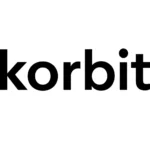In a notable development in the semiconductor industry, Japan’s Towa Corporation has announced an unprecedented surge in orders for its specialized chip-making machinery, marking a significant stride in the advancement of high-bandwidth memory (HBM) technology. The Kyoto-based company, renowned for its chip molding machines essential in the assembly of high-performance AI computing components, is set to deliver over 20 units to leading South Korean chip manufacturers within the fiscal year ending March 2024. This move underscores the escalating demand for HBM solutions, a critical element in the burgeoning field of artificial intelligence.
Towa, holding a dominant 60% share of the global market for chip molding machines, has seen its technology become increasingly vital as chipmakers push the boundaries of semiconductor innovation. The company’s machines are adept at encapsulating chips with resin to prevent malfunctions, a key process as the industry shifts towards the integration of chiplets and stacked chips to overcome the limitations of miniaturization.
This landmark order reflects a growing trend among major memory chip producers, including SK Hynix and Samsung, to heavily invest in HBM technology. HBM’s design, which stacks multiple DRAM chips for faster data transfer, is becoming indispensable for AI processors despite the general slowdown in the memory chip sector. Towa’s stock price has significantly benefited from this technological momentum, showcasing a 359% increase since last year, as the company’s advanced molding capabilities cater to the intricate requirements of next-generation chip systems.




